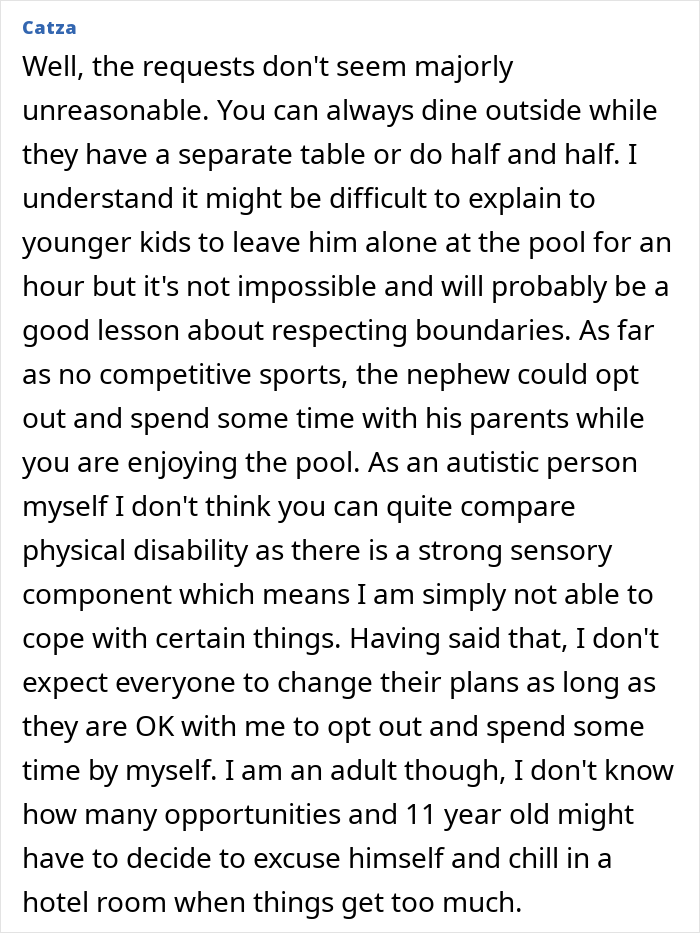Earlier this month, a woman made a post on the popular parenting forum Mumsnet, expressing her worries about a holiday her family is planning to take on Easter.
Her nephew finally got his autism diagnosis, and the boy’s mom—her sister—has created a set of rules for everyone on the trip so that they can have a positive experience.
The problem is that the aunt feels the list might be too long; however, she loves the kid and doesn’t want to cause unnecessary drama.
This woman has just received a list of things she can and cannot do on her family trip

Image credits: user25451090 (not the actual image)
And she doesn’t know how to react to it





Image credits: Alex P (not the actual image)




Image credits: freepik (not the actual image)


Image credits: APATEKPHILLIPEWATCH
Every autistic person is different, but planning ahead can be the difference between an enjoyable and disastrous trip
Autism spectrum disorder (ASD) is a condition related to brain development that impacts how a person perceives and socializes with others. It also includes limited and repetitive patterns of behavior. However, the term “spectrum” implies there’s a wide range of symptoms and severity, and the features of one case can’t automatically be applied to another.
For example, some kids with ASD have difficulty learning, and some have signs of lower than normal intelligence. Others have normal to high intelligence—they learn quickly, yet have trouble communicating and applying what they know in everyday life, and adjusting to social situations.
That being said, children with ASD often experience sensory processing differences, making new sights, sounds, and textures overwhelming. These challenges can lead to sensory overload, making it essential to plan ahead whenever traveling.
According to experts at Aspect, an organization committed to protecting the rights and interests of children and vulnerable people, holiday preparations should consider everyone in the family, but interests are a strong motivator for those with autism, and it can be really helpful to include them in the itinerary.

Image credits: freepik (not the actual image)
Similarly, some autistic children may be really interested in the planning process of the holiday as it can help them feel as though they have some level of choice and control over something that can be very unfamiliar. A great way of doing this is by creating a shortlist of destinations, accommodation, and activities, all of which you would be happy with, and letting them investigate and make their own suggestions.
Travel is full of new experiences, and routine tends to go out the window. This can be especially difficult for those autistic people who thrive on certainty. Whilst it is not possible to replicate a child’s complete routine, parents can still keep some parts. For instance, if they have a shower at 7 p.m. every night, followed by a story and bed, and they enjoy that particular routine, then it’s probably worth a shot.
For some autistic people, access to the same safe foods can be the difference between eating and not eating, and a hungry child is not going to be a well-regulated child. So, ensuring that a child consumes food in a new environment is also important. This can be as simple as packing a few boxes of their favourite cereal, but it can also require more effort.
If a family is having trouble setting everything up and they have the means, some places offer autism-friendly features, while others go further and become autism certified.

Image credits: freepik (not the actual image)
A lot of people who read the story said they wouldn’t even go on the trip under such circumstances




















 Follow Us
Follow Us





